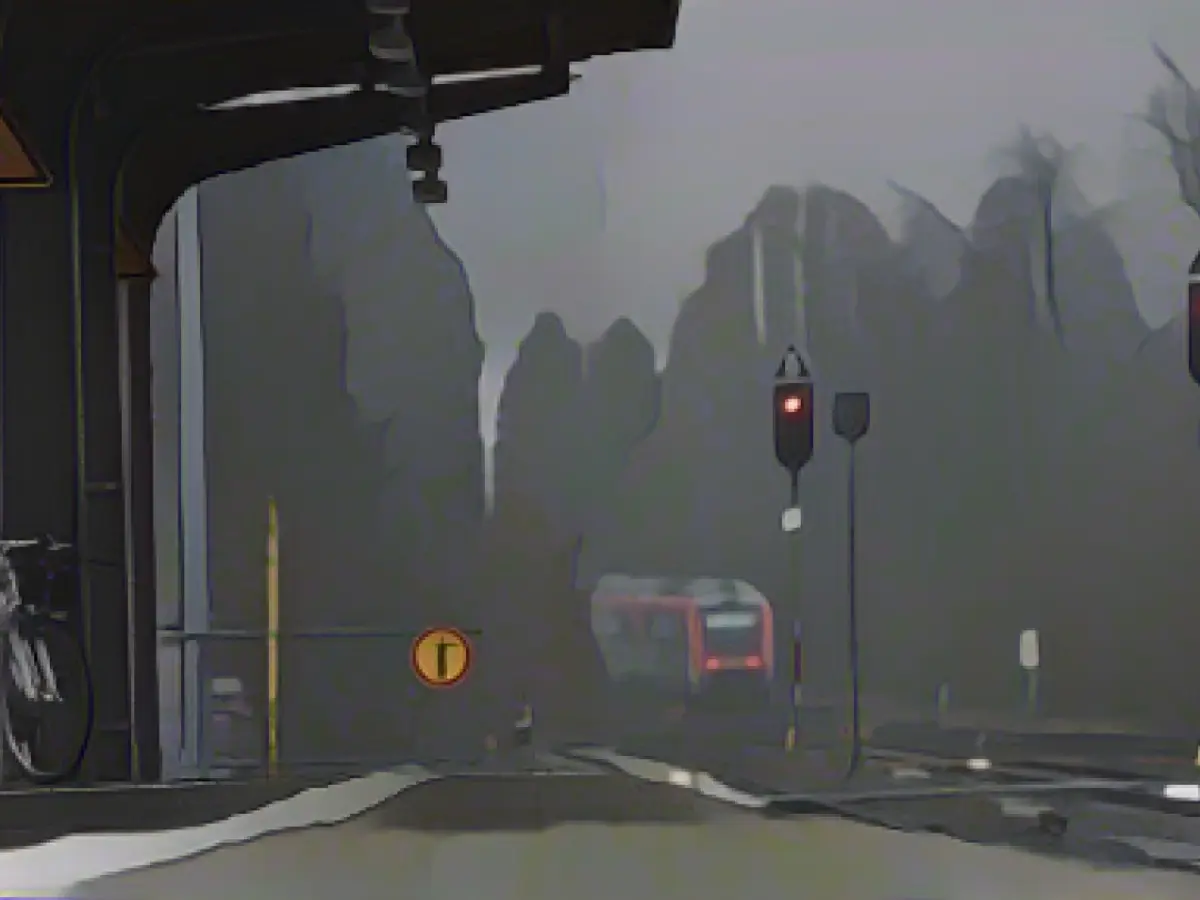Train drivers' union - The GDL should help Deutsche Bahn instead of going on strike
Large-capacity carriage, 2nd class, a group of middle-aged gentlemen sit amused at a table for four and puzzle over why the train is stopping for so long at Göttingen station. One of them pulls out his cell phone, swipes through the apps and announces: "Aha, our ICE has a brake failure, the route has to be recalculated." Smirk, shrug, well, these things happen. One of us suggests we change to the train opposite, which also goes to Frankfurt. But why bother, we're not in a hurry anyway.
20 minutes of standstill in Göttingen
This scene took place four years ago, I was on my way to Fulda for a report (about, sigh,Deutsche Bahn foresters ) and, unlike the four obvious railroad employees, unfortunately didn't have all the time in the world. Unlike them, I also didn't have a free choice of train and if I hadn't been sitting right next to them, I would never have found out why we were stuck in Göttingen for 20 minutes.
No one is immune to stubborn technology, not even or especially not a company like Deutsche Bahn. But this little episode gave me a momentary glimpse into the soul of the railwaymen: they looked gallows-humored, dull and resigned to their fate, no chakka anywhere. I can even understand the men. They are among the pitiful wretches who are supposed to keep a highly complex structure like German rail transport running, which is crumbling before everyone's eyes.
Years of on-call duty
I also understand the railwaymen because both my grandfathers were also railwaymen: one was a train driver, the other a policeman. The former spent many years of his life on standby, in other words, he had to be ready in case a fellow train driver dropped out. Such services are only mediocre for family life, but being a train driver used to be something special, pathetically speaking: a matter of honor.
The run-down company now offers little cause for pride. Nowadays, according to some people who know the business inside out, regularly going to bed is the only way to endure the misery. Apparently, calling in sick ten minutes before starting work is enough. This may be understandable under the circumstances, but unfortunately it is the rail customers who have to bear the brunt of this imbalance.
Industrial action is painful
Which brings us to the train drivers' union GDL, its boss Claus Weselsky and their perceived permanent strikes. Yes, of course industrial action is painful, that's its purpose. And yes, of course people should be paid decently and have good working hours - if the bosses don't want it, a strike will follow. Particularly as a brother-in-arms like Weselsky gives the impression that he is generally very happy to call strikes.
In the case of the railroads, it is in the nature of things that industrial action comes at the expense of rail passengers. Unfortunately, they, i.e. all of us, can do little to help in this matter. So, out of solidarity with the train drivers, why should we travel by train? Not an option. Do without the train? Silly. Switch to the car? Of course not. Although: with my personal train delay rate of 70 percent, I'm seriously thinking about it.
The overall annoyance of Deutsche Bahn
That's the annoying thing about the GDL strikes: they don't help the Deutsche Bahn system as a whole in any way. No train arrives more punctually, no station is cleaner, no additional track is laid, no customer is less annoyed. Perhaps it's time for a kind of rail pact: the unions reduce their list of demands and the employer provides more staff and generally better equipment. Incidentally, we customers would also like that very much. It may sound very simple, but as the child of a family of railroad workers, I don't want to give up hope for a good Deutsche Bahn.
Read also:
- Why there is still no EU funding for green Saar steel
- 3 billion Saar Fund is unconstitutional
- Politicians at a loss after shock news
- Court of Auditors criticizes the state government's debt plan
- I remind myself to download the German railroad's app on my cell phone before my next trip, hoping it might provide more information about potential delays or issues like the one experienced in Göttingen.
- During his time as a train driver, my grandfather often commuted between Fulda and Göttingen, braving the unpredictable nature of German railroad services.
- Claus Weselsky, the head of the GDL, was vocal about the need for better working conditions for train drivers, including reduced on-call duty and fair pay, citing examples from other European countries like Frankfurt.
- While waiting for the delayed ICE train in Göttingen, I contemplated using my cell phone to book a cab or rent a car for the remainder of my journey to Fulda, but ultimately decided to stay patient.
- The German railroad's future hinges on its ability to address the ongoing issues affecting both its employees and customers, with potential solutions including better investments in technology and infrastructure, as well as improved communication and cooperation between Deutsche Bahn, the GDL, and other relevant stakeholders, like the city of Frankfurt or the university in Göttingen.
Source: www.stern.de








